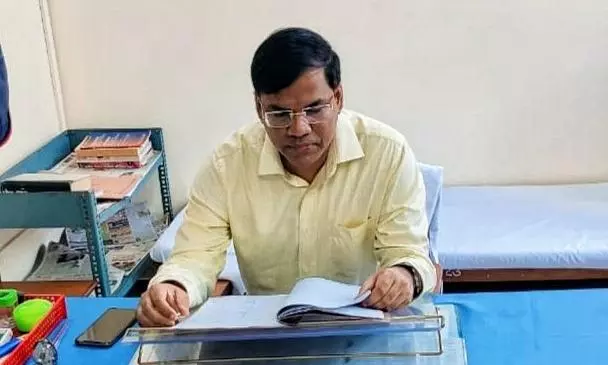
Allahabad HC removes judge’s remark praising Yogi, blaming Muslims for riot
text_fieldsThe Allahabad High Court has expunged from the records the remark made by the additional district judge in Uttar Pradesh's Bareilly, Ravi Kumar Diwakar, hailing Chief Minister Yogi Adityanath and blaming Muslims for the communal riots, deeming it politically charged and biased.
Judge Diwakar, had drawn widespread criticism for his controversial observations when hearing a case related to the Bareilly riots of 2010.
In his order, he hailed Chief Minister Yogi Adityanath as a modern-day 'philosopher king' and placed blame on Muslims for communal riots in the country. These remarks sparked outrage among activists and legal circles, prompting calls for action against the judge.
Upon review, the Allahabad High Court found Judge Diwakar's remarks to be unwarranted expressions containing political overtones and personal views. Justice Ram Manohar Narayan Mishra, while addressing a criminal revision petition filed by Muslim cleric Maulana Tauqeer Raza Khan, criticized the lower court judge for sharing his personal experiences in the order.
Justice Mishra emphasized that judicial orders are meant for public consumption and should not reflect personal biases or inclinations.
Furthermore, the High Court highlighted the importance of judicial restraint, stating that judges should use guarded expressions and refrain from making observations tangential to the core issue at hand. Consequently, the High Court expunged the controversial portion of Judge Diwakar's order, spanning from the last paragraph of page six to the middle part of page eight.
Judge Diwakar's order not only praised Chief Minister Adityanath but also made prejudiced remarks about the alleged appeasement of a particular community by political parties, attributing communal riots to this practice. Additionally, the judge implicated Maulana Tauqeer Raza Khan as the 'main mastermind' behind the Bareilly riots, further inflaming tensions.
This is not the first time Judge Diwakar has courted controversy. In 2022, while serving as a judge in Varanasi, he issued controversial directions regarding the Gyanvapi Masjid. His decision to seal a portion of the mosque based on claims by Hindu plaintiffs added to his controversial record.
The Bareilly riots of 2010, which the case under discussion pertains to, erupted following a dispute over the route of a Muslim religious procession. The clashes resulted in injuries and property damage, leading to the imposition of a curfew in the city for several days.
Meanwhile, Maulana Tauqeer Raza Khan, who was implicated in the Bareilly riots case, maintains his innocence and asserts that he has been unfairly targeted due to his religious and political affiliations.























